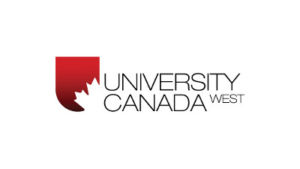Associate of Arts
Key Points
The Associate of Arts (AA) degree will provide you with a broad base of knowledge. This 60 credit (20 course) program prepares you for additional postsecondary education or direct entry into the workforce. The AA degree is accepted for transfer to undergraduate programs at University Canada West (UCW) and all degree-granting institutions in British Columbia, provided other admission requirements are met.

Program results
Students seeking an Associate of Arts degree at UCW can gain a broader multidisciplinary approach in their chosen field. Students can focus on one of eight areas while completing the Associate of Arts degree requirements. You won’t earn a formal credential upon completing a focus area, but it can be a great way to shape your Associate of Arts degree and help you prepare for a career or further study.
Learning methods
All University Canada West degree programs are offered on campus and online. UCW is home to students from more than 52 countries around the world. Communicating with other students and sharing experiences can further enhance your learning experience.
Students in the AA degree program must demonstrate both oral and written communication skills. These skills will be developed and assessed through:
- Lectures and class discussions.
- Written assignments.
- Presentations.
- Team tasks.
Focus areas
Program structure
The Associate of Arts program is an interdisciplinary set of courses designed to provide you with basic skills in writing, communication, research, and team performance. UCW academic advisors can assist you with course selection to meet your postsecondary education goals.
Admission requirements
Canadian High School Diploma (Grade 12) or equivalent with a GPA of C or better (2.0 on a 4.33 scale) or a Bachelor’s degree completed in the home country (for international students). The degree and grades must be officially translated into English.
O
• Twenty-one (21) years of age or older and out of high school for at least two years, and
• Documented success through academic, professional, or volunteer activities.
AND
• For students whose first language is not English, Academic IELTS – 6.5 or better with a minimum of 6.0 in the writing band, or equivalent.
Learn more about our educational offer
Request your quote
An advisor will contact you by phone and email within the following hours

